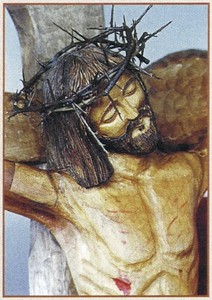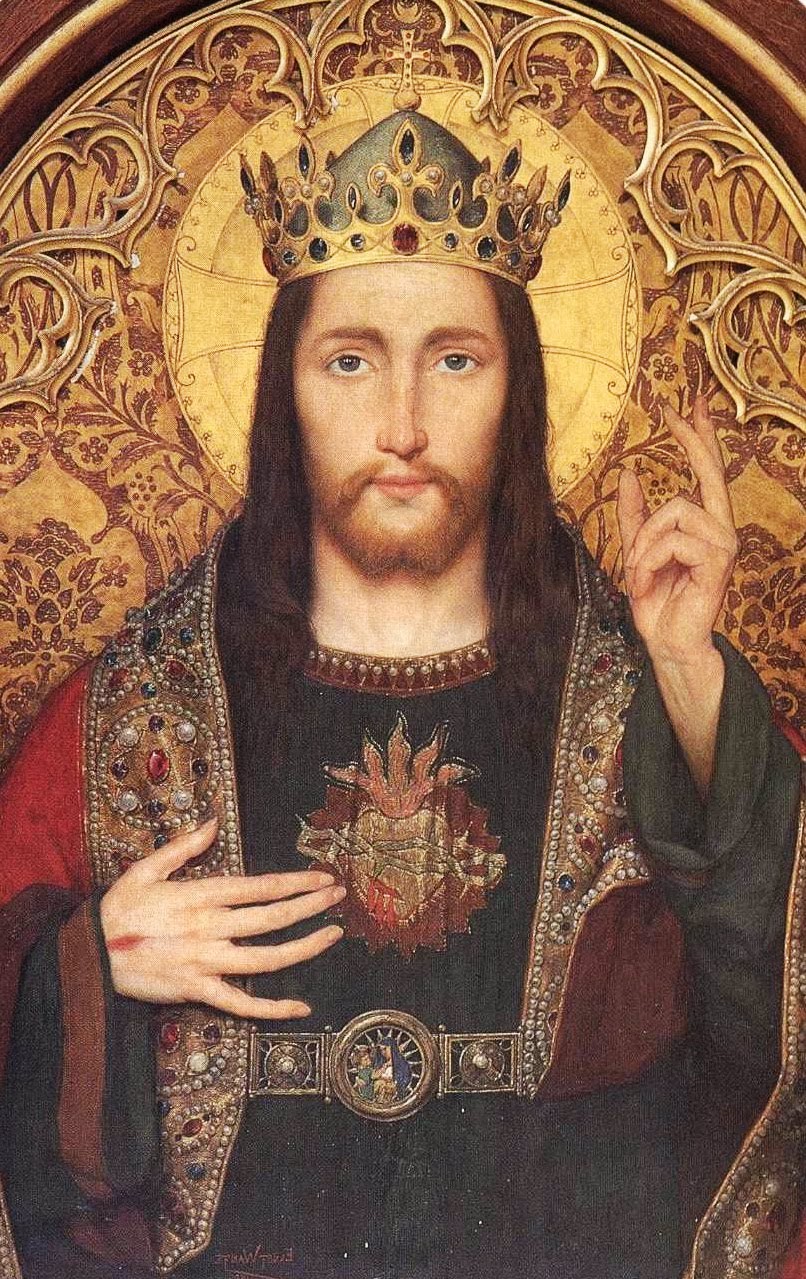Laus Meus in Ecclesia Magna

TUESDAY OF THE THIRTY–FIRST WEEK OF THE YEAR II
Philippians 2:5-11
Psalm 21: 26b-27, 28-30a, 31-32 (R. v. 26a)
Luke 14:15-24
Christ Obedient Unto Death
Nothing is more perilous than an excessive familiarity with the sublime: the juxtaposition of the Holy with the “ho-hum.” Well-known texts like today’s passage from Philippians present just such a danger. “Oh, that again! I know it. I’ve heard it hundreds of times. Onto the next thing.” Saint Paul’s canticle of the self-emptying and glorified Christ — the Christus factus est — is so familiar to us that we risk not hearing it or, at best, giving it no more than a nod of acknowledgement.
Sing the Mystery
Of course, one of the most adequate treatments of the text is its chant melody; there, melody functions as exegesis and as homily. Neum after neum, the meaning of the text is revealed in a way that preaching and commentaries cannot even begin to approach. I wonder how many of you were moved to sing softly the Christus factus est during your lectio divina this morning. I was.
Through the Lens of Psalm 21
The Lectionary offers us another approach. It invites us to read the text through the lens of the Responsorial Psalm. Of course, Psalm 21 — the very prayer intoned by Jesus from the cross — is well known to us. We sing it on Friday in the Divine Office. What is original and new is the way the liturgy puts the triumphant conclusion of Psalm 21 together with the canticle from Philippians. It is this that can save us from the pitfall of an excessive familiarity with both texts.
The Praise of Christ in the Church
The refrain of the psalm was: “I will praise you, Lord, in the assembly of your people” (Ps 21:26a). The Latin lectionary gives, “Apud te, Domine, laus mea in ecclesia magna” — “With you, O Lord, is my praise in the great church” (Ps 21:26a). Who is saying, “I will praise you, Lord, in the great assembly”? The speaker is the glorified Christ, the one “highly exalted by God” (Ph 2:9). The speaker is the one upon whom God “bestowed the name that is above every name, that at the name of Jesus every knee should bend, of those in heaven and on earth and under the earth” (Ph 2:9-10).
The Voice of Christ
Today’s Responsorial Psalm, then, is the voice of the crucified, risen, and ascended Christ addressing the Father in the midst of His Church. It is Christ’s own prayer in us: the voice of the Head praying on behalf of the whole Body. It is the prayer of the self-empting and glorified Christ in the mouths of his members: a kind of sacrament, a mystery of communion.
Praying At Table
In the monastic tradition, there is a connection between church and refectory, between Eucharist and meal, between the Holy Table of the altar and the holy table of the common life. We find that same connection in the Responsorial Psalm: “The poor shall eat and shall have their fill; they that seek after the Lord shall praise him; your heart shall live forever” (Ps 21:26). This is the traditional Catholic grace before supper: “Edent pauperes et saturabuntur.” The Church hears this particular verse of Psalm 21 in a Eucharistic key. (Note that the traditional form of grace at meals was never abolished; it is found in the current official Book of Blessings. Dom Nocent identified these psalm verses at meals as one of the most ancient forms of prayer in use in the Church.)
Saint Willibrord
I find it very compelling that Saint Willibrord whom we remember today would have used this very form of grace at table. Willibrord was educated at the monastery of Ripon in England under the direction of Saint Wilfred. In the year 678 he went to a monastery at Clonmelsch in County Carlow, Ireland where he remained for twelve years and was ordained a priest. Pope Sergius consecrated him missionary archbishop of the Frisians in 695.
Fostering a Eucharistic Culture
Saint Willibrord’s approach to evangelization needs to be rediscovered in our own day. What exactly did he do? First, he erected an altar. Over the altar he set up the cross. And around the altar and the cross he built a monastery, giving primacy to the praise of the Divine Majesty. Saint Willibrord preached the Gospel by modeling a Eucharist–centred society and by fostering a Eucharistic culture. This is the mission of every monastery: to illustrate what the family can be, to demonstrate the fruitfulness of a culture of life rooted in the sacrificial love of the Eucharist, to sing the message of the Christus factus est within earshot of the world.
The Mind That Was in Christ Jesus
Today, it is our crucified and risen Lord who sings in prophecy: “The poor shall eat and have their fill; they shall praise the Lord those who seek him” (Ps 21:27). The Eucharistic link that connects cross and tomb, altar and table, is established. Or is it? Cross and tomb, altar and table, are given us that we might have “among ourselves the mind that was in Christ Jesus” (Ph 2:5). We who at this Holy Table “eat and have our fill” (Ps 21:27) must bear the self–emptying and glorified Christ to the other table, that of life together, that in all things, “those who seek the Lord may praise him” (Ps 21:27).

